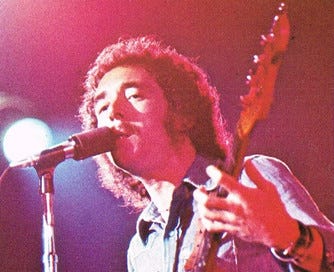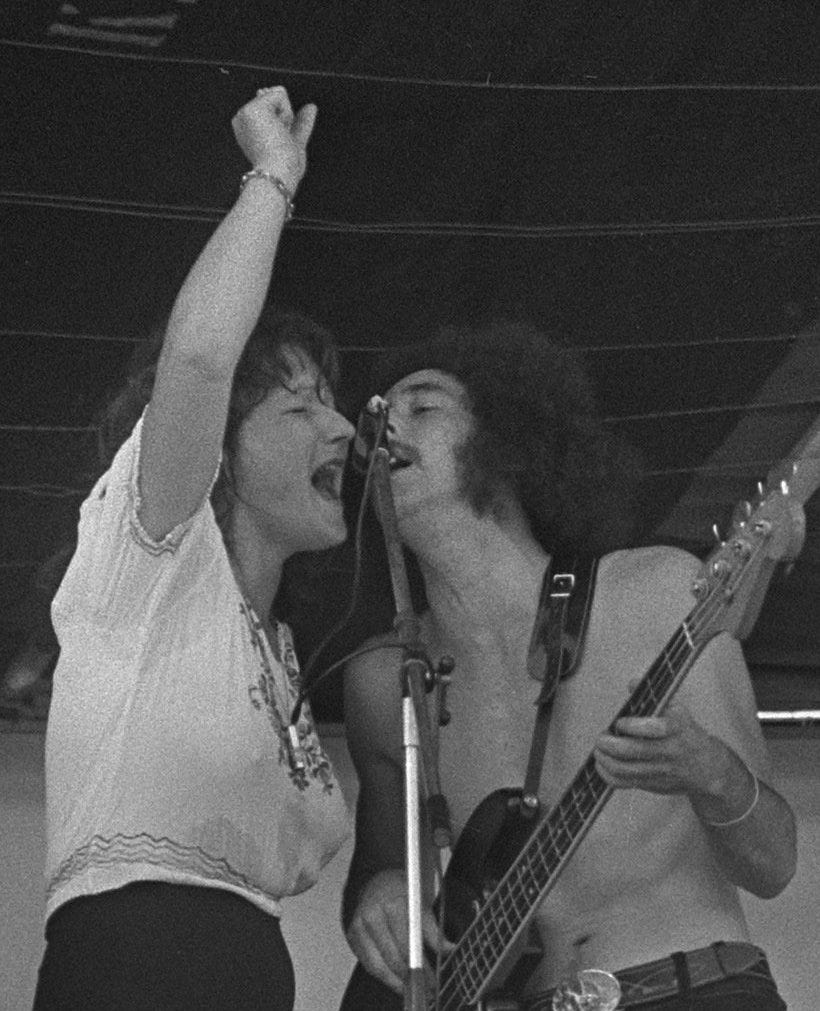It was Saturday, July 28, 1973, and I had turned 18 the previous month. I was now a high school graduate and was spending the summer working 12-hour days, six days a week, on a grass seed farm in the Willamette Valley. The details have slipped away, but somehow, I made it to Portland’s Memorial Coliseum to see Jethro Tull’s Passion Play tour. Which was fantastic, by the way. But the opening act seriously caught my attention and held it for decades. They were fellow Tull label mates, the Robin Trower Band. I couldn’t even tell you who I was at the show with, but we were blown away by Robin Trower for two big reasons: Trower seemed to be channeling the spirit and style of Jimi Hendrix, who had been gone only a few years, and by the distinctive, rich, powerful voice of the band’s lead singer, James Dewar.
Becoming a Fan
That day, I became a big Robin Trower fan, buying albums and seeing the band live in concert another half-dozen times, always entranced by the trio’s skill and ability.
I’ve never forgotten my introduction to James Dewar’s fabulous voice, often considered one of the most underrated rock singers. He was also the bass player, doing double duties in a power trio (as an aside, I’ve always been fascinated by the concept of rock trios. I could go on all day about my favorites: Jimi Hendrix, ZZ Top, Cream, Rush, and so on. And I’ve gotten into late-night discussions about whether four-piece bands, where three of the members are playing instruments, and the fourth is just singing, are really just trios with a lead singer. Think Led Zeppelin, The Doors, AC/DC with Bon Scott, The Who, Van Halen, and so on. But I digress).
James Dewar was born in October 1942 in Glasgow, Scotland. While there isn’t much to find online about his early life or even his personal life, he was playing in bands in his twenties. He played in a band called the Luvvers, which backed up Lulu on “Shout” in 1964, when he was 22. According to Wikipedia, he played rhythm guitar on the track. Dewar played with Stone the Crows, a Scottish rock band that formed in Glasgow in 1969, and lasted until 1973. Dewar played on the first two albums and left the band in 1971.
There is this short bit from an article on RockAndRollParadise.com:
Maggie Bell took him on board with the legendary “Stone the Crows” and the shy man’s voice was soon exposed on classics like “The touch of your loving hand”. Another young singer had exploded onto the music scene, but the best was yet to come. Living in London with his wife Martha and their young family, he was approached by Frankie Miller. The two Glasgow buddies were having a small refreshment when out of the blue Frankie told Jimmy that “there might be a job going” with some guitar player called Robin Trower, that the music industry insiders were raving about. “What kind of job?” asked Jimmy. Frankie laughed and said, “Oh, I don’t know. Maybe playing bass, maybe singing”. Jimmy applied and got both jobs.
James Dewar’s Time with Robin Trower
Starting in 1973, James Dewar was the singer and bass player for the Robin Trower band and played on eight studio albums until 1983, when the band was dropped by Chrysalis Records. In between, the Robin Trower Band was selling out arenas and having gold records tossed their way. They were a big deal.
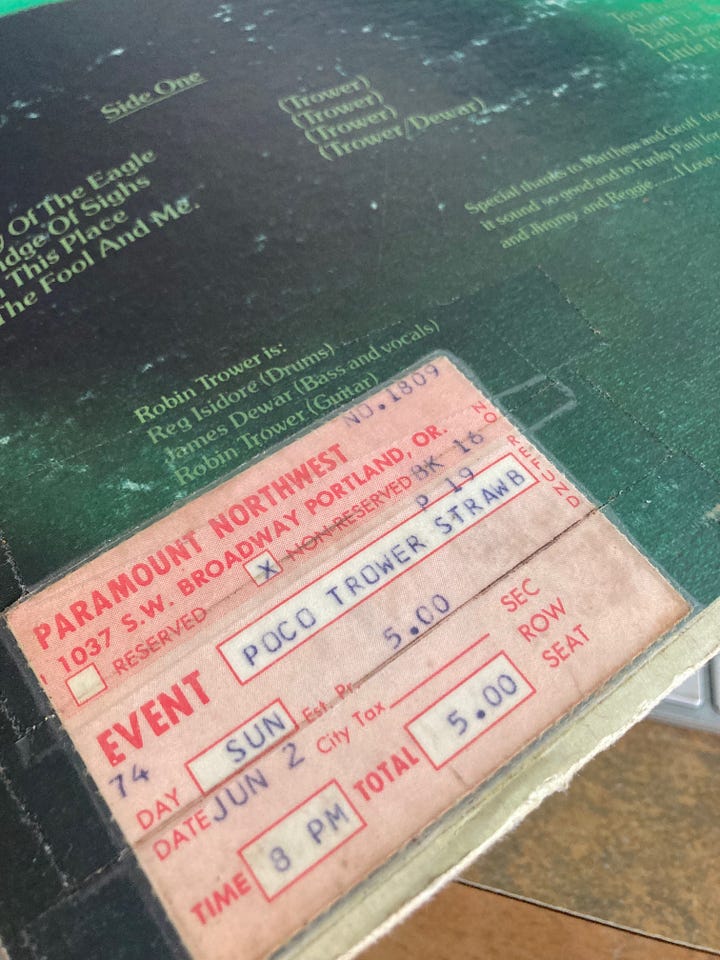
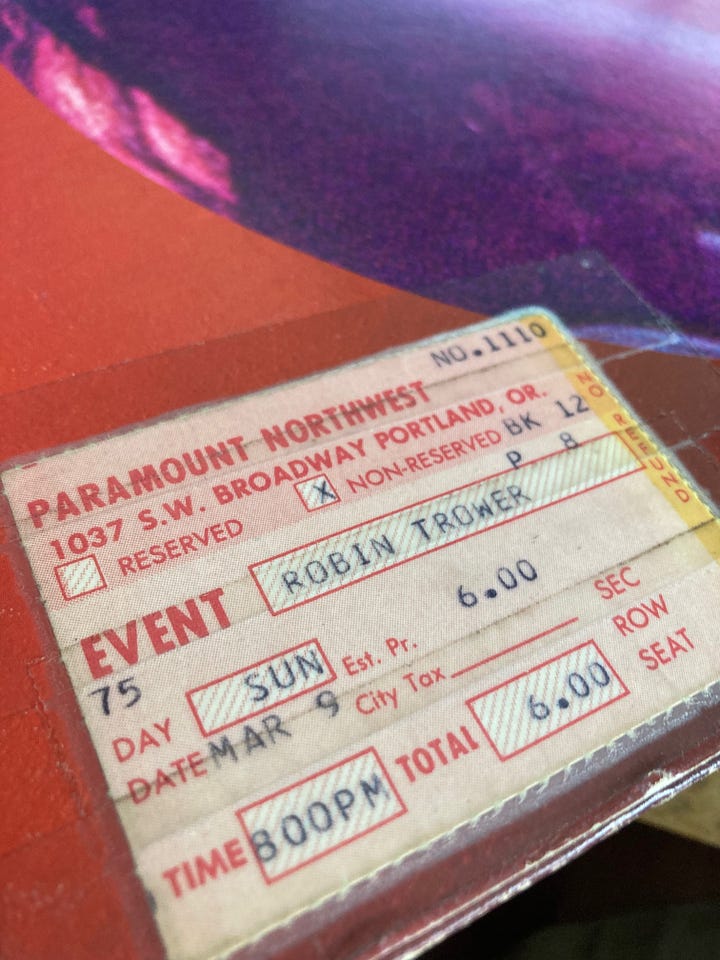
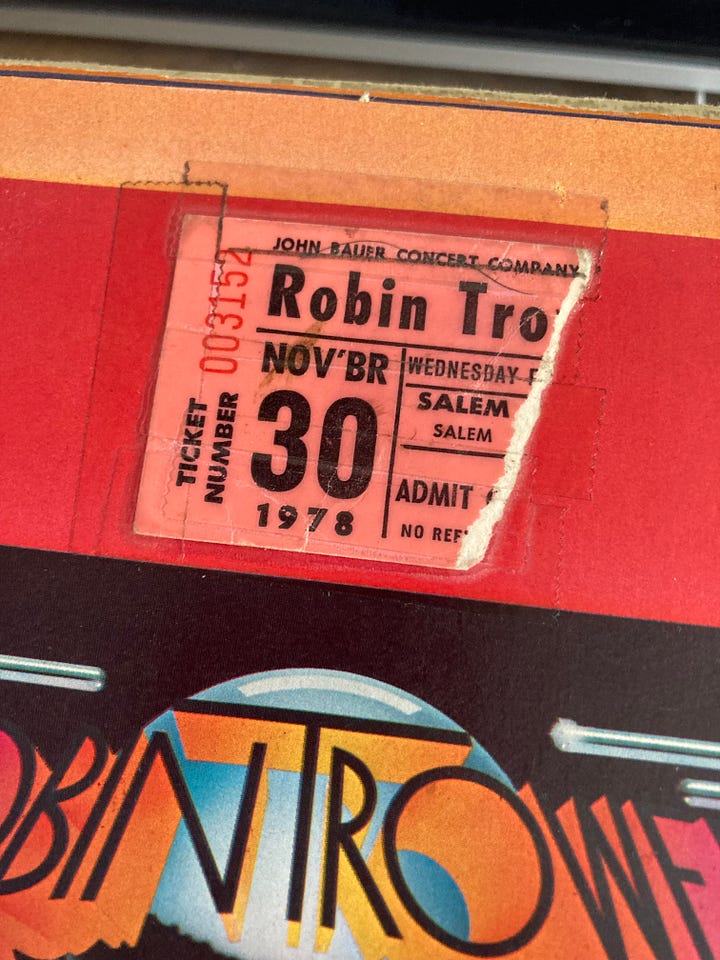
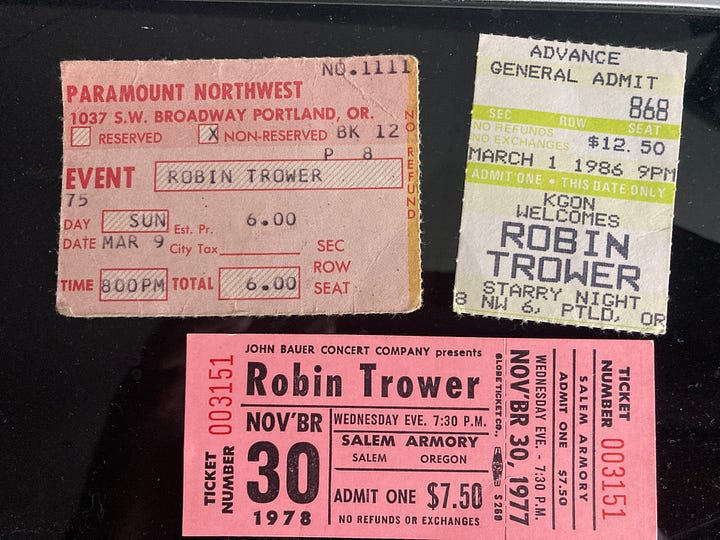
Dewar recorded a solo album, Stumbledown Romancer, during the 1970s, at the height of his career with Robin Trower. It was not released until 1998, and it is still hard to find on streaming services.
If you search for articles on James Dewar, it’s not hard to run across many that say something similar about Dewar: that he was a fantastic singer and hasn’t gotten the recognition he deserved. As a fan of Dewar and Trower, it is heartening to see writers and fans expressing their love and respect for his work.
Personal Impact of James Dewar
Over the years, I’ve listened to a lot of Robin Trower albums. Nine of them are in my personal collection; of those, only two don’t have Dewar on lead vocals. The other two are albums with Jack Bruce of Cream on bass and lead vocals (not a bad substitute for Dewar!), Robin on guitar, and either Bill Lordan on drums (BLT) or Reg Isidore (Truce). By the way, Isidore played drums on the first two Trower albums in 1973 and 1974. In the subsequent Trower releases, I can appreciate Robin’s guitar playing, but it’s a mental struggle to fit whoever else is singing into the music. My brain is set on James Dewar being the “official” voice of Robin Trower, and I’ll never think of the band in any other way.
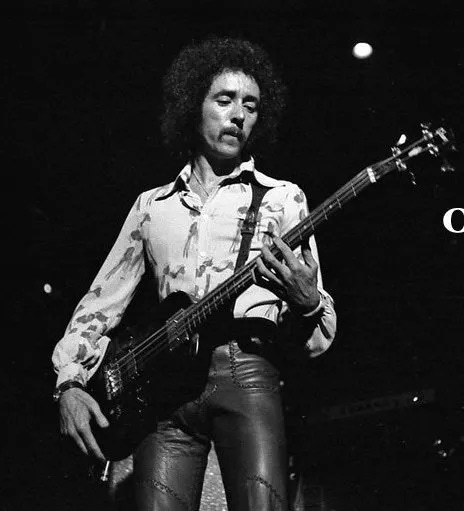
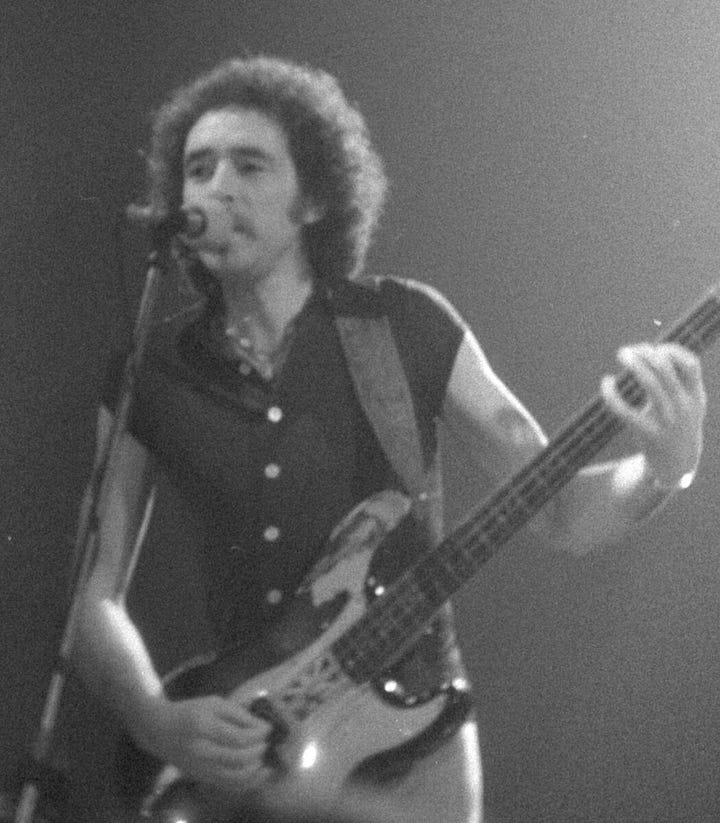
I was riding my bicycle through Salem’s Minto-Brown Park yesterday and had Robin Trower’s music on shuffle, and instead of just letting the music wash over me as a background soundtrack, like I often do when I’m involved in an activity, I did my best to pay attention to the mood and sensibility it evoked. The mid-70s, in particular (especially in my life, as I was entering my twenties), seemed almost otherworldly. I was exploring the world and my place in it, doing martial arts, practicing yoga, playing music, partying (yes!), and discovering books, movies, and other works by a wide variety of creators to get a sense of my place in the world.
Robin Trower’s albums of the time made the biggest impact and are the most significant to me, and are the ones that set the stage. To me their first three are their most significant:
Twice Removed from Yesterday (1973)
Bridge of Sighs (1974)
For Earth Below (1975)
Music That Takes Me Away
It seemed as if each album and track stretched beyond mere musical composition, reaching into the depths of human experience with a hauntingly beautiful resonance that still echoes in my life and takes me back to that most significant time in my life. Trower’s guitar work, which was rich in technical proficiency and emotional mastery (how did he get those sounds??), blended seamlessly with Dewar’s poignant and gritty voice, which was a perfect match and cut through the sound that evoked a sense of profound introspection and escapism.
The recordings, particularly those three albums, had a dreamy, ethereal quality. They were raw yet polished, relatable yet transcendent, dreamy yet grounding. My memories of both the albums and the half-dozen times I saw Robin Trower and James Dewar on stage are forever locked in my brain and heart.
Short James Dewar Playlist
If you want to jump back to that time when James Dewar was on stage, check out this brief playlist, starting off with his turn as rhythm guitar player with Lulu, then a couple of Stone the Crows tracks before diving into the Robin Trower Band:
James Dewar died May 16, 2002, of a stroke after years of disability caused by a rare medical condition.
Fun Fact:
On March 9, 1975, I saw Robin Trower at Paramount Theater in Portland. It was Robin’s 30th birthday, and before the band came out for an encore, the stage manager came out and said it was his birthday and that we should sing “Happy Birthday” to him when the band returned. It was a cool moment.


